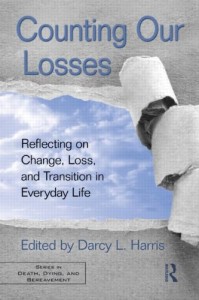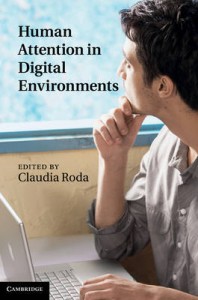New psychology books come in every week at the Central Library. Subscribe to the Psychology Department blog to be kept informed of new arrivals!
If these books are out on loan, do place a hold on them by clicking on the orange “Request” button at the top of the page- that way, you can be the next one to read them!
To see more new Psychology books, click here.
(1) Bullying in different contexts
(edited by Claire P. Monks, Iain Coyne)
Central Library (Level 3)
BF637 Bul.Bu 2011
About the book:
Bullying has a tendency to be associated with aggression between children in the playground, but bullying and abuse can also be observed in other social settings. Bullying in Different Contexts brings together, for the first time, leading international researchers to discuss these behaviours in a wide range of settings, including preschool, school, the home, residential care, prisons, the workplace and cyberspace. The authors provide background to the different contexts, discuss the impact and types of interpersonal aggression and the characteristics of those involved. A final chapter collates the findings from each context to draw conclusions on the similarities and differences between the behaviours, risk factors for involvement and theoretical approaches to explain bullying. This original volume will further our understanding of bullying and inform preventative and intervention work. The authors seek to show how research from diverse settings may inform our understanding of the bullying phenomenon as a whole. (Cambridge University Press)
(2) Counting our losses : reflecting on change, loss, and transition in everyday life
(edited by Darcy L. Harris)
Central Library (Level 3)
BF575 Dep.Co 2011
About the book:
This text is a valuable resource for clinicians who work with clients dealing with non-death, nonfinite, and ambiguous losses in their lives. It explores adjustment to change, transition, and loss from the perspective of the latest thinking in bereavement theory and research. The specific and unique aspects of different types of loss are discussed, such as infertility, aging, chronic illnesses and degenerative conditions, divorce and separation, immigration, adoption, loss of beliefs, and loss of employment. Harris and the contributing authors consider these from an experiential perspective, rather than a developmental one, in order to focus on the key elements of each loss as it may be experienced at any point in the lifespan. Concepts related to adaptation and coping with loss, such as resilience, hardiness, meaning making and the assumptive world, transcendence, and post traumatic growth are considered as part of the integration of loss into everyday life experience. (Routledge)
3. Social justice and the experience of emotion
( Russell Cropanzano, Jordan H. Stein, Thierry Nadisic)
Central Library (Level 3)
BF511 Cro 2011
About the book:
This book seeks to integrate the scholarship on justice and affect. The authors focus on empirical social scientific theories pertaining to fairness, mood and emotion. Most of the literature in this book is drawn from social and organizational psychology. Other areas included are management, personality and evolutionary psychology. The book includes coverage of relevant philosophical positions from Aristotle and Rawls.
The goal of this book is to familiarize the reader with the rich tradition of conceptual models explaining the association between justice and emotion. It will be of interest to graduate students, researchers and practitioners in industrial organizational psychology, social psychology, management and business ethics. (Routledge)
4. The first year and the rest of your life : movement, development, and psychotherapeutic change
(Ruella Frank, Frances La Barre)
Central Library (Level 3)
BF720 Com.Fr 2010
About the book:
The movement repertoire that develops in the first year of life is a language in itself and conveys desires, intentions, and emotions. This early life in motion serves as the roots of ongoing nonverbal interaction and later verbal expression – in short, this language remains a key element in communication throughout life.
In their path-breaking book, gestalt therapist Ruella Frank and psychoanalyst Frances La Barre give readers the tools to see and understand the logic of this nonverbal realm. They demonstrate how observations of fundamental movement interactions between babies and parents cue us to coconstructed experiences that underlie psychological development. Numerous clinical vignettes and detailed case studies show how movement observation opens the door to understanding problems that develop in infancy and also those that appear in the continuing nonverbal dimension of adult communication.
Their user-friendly nonverbal lexicon – foundational movement analysis – enhances perception of emerging interactive patterns of parents and their babies, couples, and individual adults within psychotherapy. Clinicians in any setting will find this book to be a masterful application of infant research and movement theory that significantly augments clinical acumen and promotes greater understanding of the nonverbal basis of all relationships. (Routledge)
5. Human attention in digital environments
(edited by Claudia Roda)
Central Library (Level 3)
QA76.9 Hum.Hu 2011
About the book:
Digital systems, such as phones, computers and PDAs, place continuous demands on our cognitive and perceptual systems. They offer information and interaction opportunities well above our processing abilities, and often interrupt our activity. Appropriate allocation of attention is one of the key factors determining the success of creative activities, learning, collaboration, and many other human pursuits. This book presents research related to human attention in digital environments. Original contributions by leading researchers cover the conceptual framework of research aimed at modelling and supporting human attentional processes, the theoretical and software tools currently available, and various application areas. The authors explore the idea that attention has a key role to play in the design of future technology and discuss how such technology may continue supporting human activity in environments where multiple devices compete for people’s limited cognitive resources. (Cambridge University Press)






